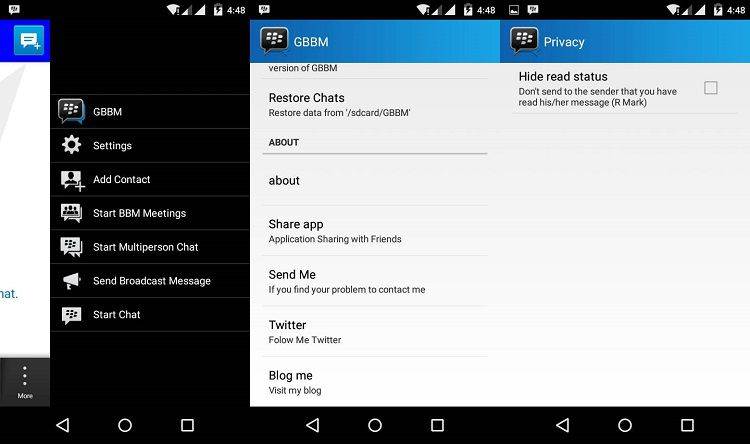![]()
BlackBerry is out with version 2.0 of its increasingly popular BlackBerry Messenger social communication software. The new version brings to iOS and Android ![]() devices the Voice and Channels capabilities that BlackBerry device owners already have, and may enhance the business
devices the Voice and Channels capabilities that BlackBerry device owners already have, and may enhance the business ![]() appeal of the product.
appeal of the product.
The Voice feature allows free voice calls to be made over Wi-Fi ![]() or a data
or a data ![]() connection, for conversations with other BBM users. As a free service, it may appeal to smaller companies that are intent on keeping their communications costs down.
connection, for conversations with other BBM users. As a free service, it may appeal to smaller companies that are intent on keeping their communications costs down.
Channels are topic-based chat rooms that a user or a business can set up. Specific times can be scheduled for a channel’s followers to chat with the channel’s owner, such as a business or brand, and followers are kept updated about new posts or replies to comments. Channel owners can also track performance through a dashboard and, if they allow commenting, can pre-approve them.
At Least 100 Million
Other features included in 2.0: easier photo sharing, dozens of new emoticons, support for the online file sharing service Dropbox, larger BBM groups, and a location-sharing function that can be limited by a time set by the user.
The Canadian company is finding an enthusiasm for BBM that it has not been able to stimulate for its BlackBerry 10 smartphones. When the iOS/Android versions were first released in October, for instance, the company reported 10 million downloads in the first 24 hours.
By BlackBerry’s released figures, there are at least 100 million users for the service. However, that may considerably shortchange the current total because the company has not updated the total of iOS/Android users since the end of December — about 40 million — or the BlackBerry-based users since the middle of last year. Some BlackBerry-watchers have estimated that BBM will boast at least 150 million users by the end of this year.
Bocking Departs
Despite BBM’s huge popularity and potential upside in both the business and consumer markets, BlackBerry announced earlier this week that the executive in charge of BBM, Executive Vice President Andrew Bocking, “has made the decision to leave the company.” No reason was given, and Bocking did not provide any comments.
BBM is a separate unit inside BlackBerry, but it will now become a part of the enterprise ![]() unit. Under the new leadership of Chief Executive John Chen, BlackBerry has said it will refocus on the business market, and BBM’s new location in the company structure indicates that it is expected to help penetrate that market, even though it has a large consumer base.
unit. Under the new leadership of Chief Executive John Chen, BlackBerry has said it will refocus on the business market, and BBM’s new location in the company structure indicates that it is expected to help penetrate that market, even though it has a large consumer base.
It’s not yet clear what the business model is for the free service. Advertisements at some point are one option, as are secure ![]() , enterprise versions that are optimized for the needs of businesses, where BlackBerry still has some brand recognition. Chen has said that he is not expecting BBM to show a profit until 2016.
, enterprise versions that are optimized for the needs of businesses, where BlackBerry still has some brand recognition. Chen has said that he is not expecting BBM to show a profit until 2016.
NewsFactor Network





![[Video] Reimagined for Orchestra, ‘Over the Horizon 2026’](https://loginby.com/itnews/wp-content/uploads/2026/02/Video-Reimagined-for-Orchestra-‘Over-the-Horizon-2026’-100x75.jpg)

